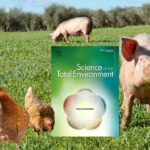
Recall of millions of FFP2 graphene masks
Thanks to an article in Mediapart, we learned of the recall by the French authorities of FFP2 masks containing graphene. These masks come from the Chinese manufacturer Shandong Shengquan, whose other category of masks was recalled in Canada last March, triggering a cascade of recalls thereafter. The note from Santé publique France was published on the ANSM website on May 25, without much publicity. Nearly 17 million of the 60 million masks ordered were distributed to caregivers in 2020. A risk assessment by the European Chemicals Agency (ECHA) is reportedly underway .
As a reminder, on May 26, the Institut de recherche québécois en santé et en sécurité du travail (IRSST) evaluated the toxicity and release of graphene nanoparticles contained in masks from the same manufacturer (but a different model), concluding that “the potential for exposure to graphene particles through inhalation is very low” but also that “in humans the risk is indeed present and may not be negligible”.
Our information sheets to go further
Other news on the topic
Upcoming Nano Agenda

- Webconference for analysis laboratories, plant fertilizer manufacturers and distributors, public authorities…
- Moderated by David Krupka, nanotechnologies development manager at AFNOR Normalisation and Emilie Langlois-Bertrand, nantechnologies standardization project manager.
- In partnership with Armand Masion (CEREGE) and Patrice Charpentier (ANSES).
- This exchange will also be an opportunity to explore the creation of a national platform to identify standardization needs.
- Website: https://www.afnor.org/evenements/qualite/nanotechnologies-agriculture-cadre-pratique-responsable

- International conference on metallic nano-objects for experts working in the interdisciplinary field of metallic nanoparticles, with a particular emphasis on nanoparticle synthesis and characterization, plasmonics, optics and photonics, catalysis, biomedicine, electronics, and nanoparticle recycling
- Organizers / Partners: CNRS, Bordeaux University, Bordeaux INP, ICMCB, CRPP, CBMN, ISM
- Website: https://mno2026.sciencesconf.org
- Two days of information, discoveries and testimonials for occupational health and safety professionals, experts and enthusiasts to discuss chemical risk prevention in the workplace.
- Organizers: Association TOXILIST
- Website: https://toxidays.fr/



